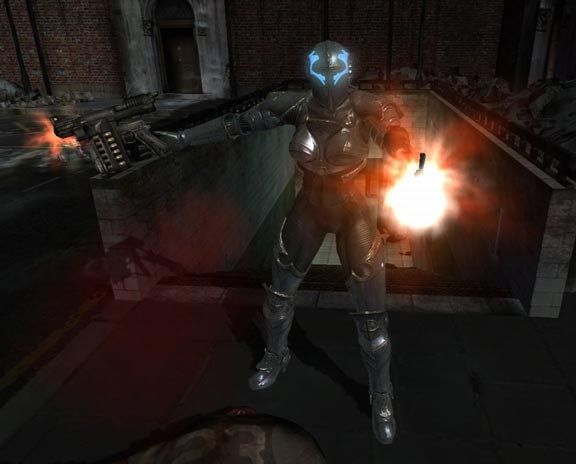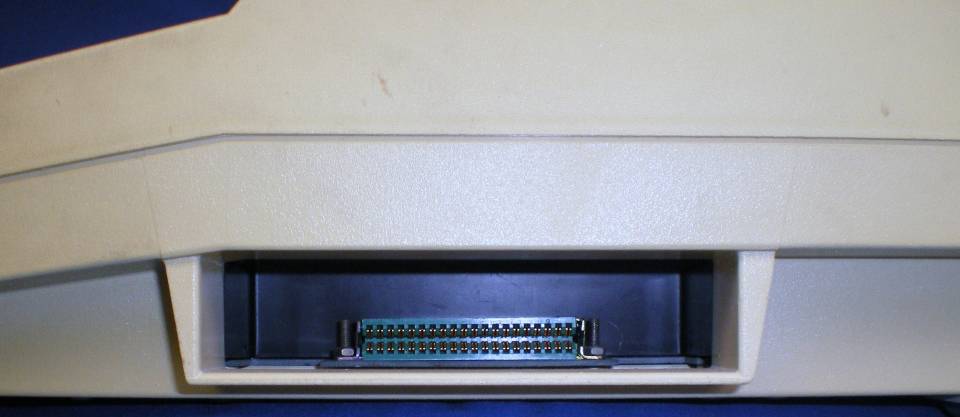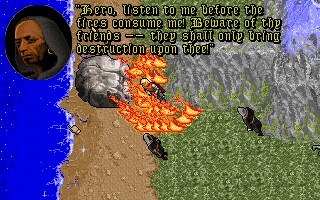Cartoons, Legends and Wasted Potential
By Tylea002 14 Comments
Spoilers for Avatar/Legend of Korra
This right here is a blog about a TV SHOW. Which, you know, isn't a video game. But hey, I'm throwing it up here anyway, because I hear Korra's in with the cool kids. And it's one of the most disappointing wastes of potential this side of Mass Effect 3. In fact, to say I was disappointed by Legend of Korra is both unfair and an understatement. And it’s worth talking about. So let’s have a blog to say something about legends. Spoilers for both Avatar shows follow, so watch them first before reading, because they’re very much worth your time.

I was introduced to Avatar: The Last Airbender a good few months ago by a friend of mine, and after work got in the way for a while, I got real into that show. I watched all of Season Two in one sitting, because clearly I am an insane person. So yes, it’s good. But why is it so good? Why did that particular cartoon inspire the fanbase reaction that it did? The answer, to me, isn’t just because of it’s cool characters, plot or setting, but that it had something to say. And it used those awesome characters to say it. Like many children’s shows, there were week to week episodes where the characters learned a life lesson in order to overcome the problem that confronted them. Some episodes were hamfisted about this (look no further than “The Great Divide” or "The Painted Lady") but more often than not, Avatar hit these out of the park, without feeling preachy.
This, however, was not where it shined. Where it shined, was it’s arc. And like all good "legends," it was not a story for the sake of itself, it had something to say. And neither the arc or the “message” of the show were especially original, they were just very, very well told, and a clever deconstruction of the chosen one concept. We don’t have a chosen one. We have two. Aang may be the Avatar, but Zuko feels as if he has a predetermined destiny too, that is to capture said Avatar. Both feel they have responsibilities to a path already laid out for them. However, Zuko is very much the villain of the first series. He’s the prince of an evil empire, intent on conquering the world, and capturing our lead. Needless to say, a bad dude. Through one of the best written character arcs on television, he ends up Fire Lord, who hand in hand with The Avatar, brings about a new age of peace.
Through the addition of his beautifully done redemptive arc, the message changes from “good conquers evil” to one of acceptance. One of admitting, but not dwelling on your mistakes. And that we should be more open to the possibility of forgiveness, for that takes the effort of both sides. Now, these are not new messages, in fact they’re very standard morality tales and have been done to death, but that doesn’t matter. The way in which Avatar tells the story of these characters about the possibility for good from within anyone, makes me feel great about humanity. It’s a perfect message for your average kid, going through those school struggles (you know, the target audience!), and Zuko's parallel story is what elevates the show from beyond some wacky kids on a quest to save the world.

Which brings us to Legend of Korra, and the main, most crushing flaw: it has nothing to say. At least, in my opinion, and definitely nothing that makes it worthy of "Legend" status, indicating that it has some knowledge to pass on. It begins in probably the most perfect way, Korra is the opposite of Aang, she's the avatar, and you gotta deal with it. She relishes in the physical side of her role, but cares not for the spiritual. So she sets off to Republic City to learn Airbending, which she will struggle with, as she needs to be in the right frame of mind to connect with her powers, which requires some spiritual growth.
Korra doesn't really have the standalone "lesson of the week" episodes, and it doesn't need them. It's a serialized plot, which is fine. That's the style of episodic storytelling The Wire uses, and it's one of the best shows of all time. The Last Airbender shined when it actually stopped the plot, just hung about in Ba Sing Se doing nothing, and we got two of the greatest episodes of television ever produced, but Korra doesn't have that luxury. It has to balance characters and plot far more deftly to succeed. It does this to middling success.
The majority of the character plots come in the form of two love triangles (arguably three, even Tenzin gets one set up). Is that too many love triangles for one show? Yes, why yes it is. I could talk for hours about how I feel the way they go with love triangles undermines the entire season, but that's for another time. (Shortish version: Bolin's situation within them is the most unfortunate, and then his reaction is the least strong. Gets the shortest straw, makes the least fuss, then cries. Doesn't get angry with anyone, just gets sad, and by the end of the episode, comes to terms with his position. Bolin establishes himself as the kindest and most forgiving and understanding man alive, and then they never develop him any further than this despite him being the one of the group that you want to see more).
But enough about that! Let's talk about the ending ending, and how Legend of Korra comes so close to redeeming every single flaw it has, then throwing it all away. Korra loses her bending! Thematically, the plot has been about perceptions of equality, and Korra was always gifted. She judges her worth on how well she's doing with her bending, and relishes her unique position as the Avatar. Then she loses it all. This is the story development that comes both out of left field and seems as if it was inevitable all along: The Avatar so skilled in the physical but disconnected from the spiritual loses her physical abilities.

At this point, everything I'd seen so far in the show went up a level in my mind. For example, those the teenage (obviously) way that the relationships played out as the major focus were deliberately overpowering, all a set up for this moment of revelation where Korra has to re-evaluate all her priorities, and continue her journey without what she had considered the most important part of her identity, setting the stage for a beautiful story of triumph in future books as Korra becomes the first Avatar without bending powers, and becomes legend not through physical ability, but through the spirit and character. That right there is having something to say. That is one uplifiting message that makes me feel good, and again, speaks to that child/teenage target audience, of overcoming perceived weakness, and discovering strength from within, and not defining your "quality" by your ability, but instead through who you are.
Then two things happen: One, she gains airbending. Not through spiritual peace, but through seeing her boyfriend in danger, through anger and desperation. This is only a minor problem, as it doesn't entirely undercut what happened minutes earlier. What does is when at her lowest point, Aang just shows up and gives her her powers back, and the power to heal others, and she gets Mako, and she can go into the Avatar state. And what does that "have to say?" That when you get to your lowest point, someone will fix your problems for you? Sure, the lowest point/highest change metaphor is a good one, but Korra doesn't influence change within herself, despite clearly being an extremely strong character, with the capacity to do so. She's given the powers on a plate, and never has to truly confront her over reliance on the physical, even though the implication is that she is now in control of both disciplines, physical and spiritual, being that she can now connect with the Avatar State at will.
It was a real letdown, because up to that point, none of the flaws ruined the show. Korra is an excellent character, Republic City is a brilliant location and I enjoyed the majority of my time I spent in this world. But it reduced the show from "Legend" to just another story where cool stuff happens and then it ends. Perhaps it's because we're only 1 book, 12 episodes in, but Korra Book 1 was far more standalone than any of the TLA books. And in comparison, Episode 12 of TLA was The Storm, a fantastic flashback episode where we learn that Aang and Zuko really aren't that different. At this point in TLA, the mission statement had been set, the pieces laid out, and the hook was firmly in my cheek. Korra has such a beautiful story, perhaps even a better one, firmly within it's grasp, and lets it go to take a lazier way for the sake of a happy looking ending, though it's hollowness, the Deus ex Aang dampens any ability for a sense of triumph. And hollow was one of the last things I expected from the Avatar universe.
Legend of Korra isn't "bad" by any stretch of the imagination, and I'm going to be right there watching season 2 with everyone else, but I'm deflated. I want more than anything for this show to be the best thing ever, because it's currently the only televisual window into the Avatar universe, and I want to spend as much time there as possible.
